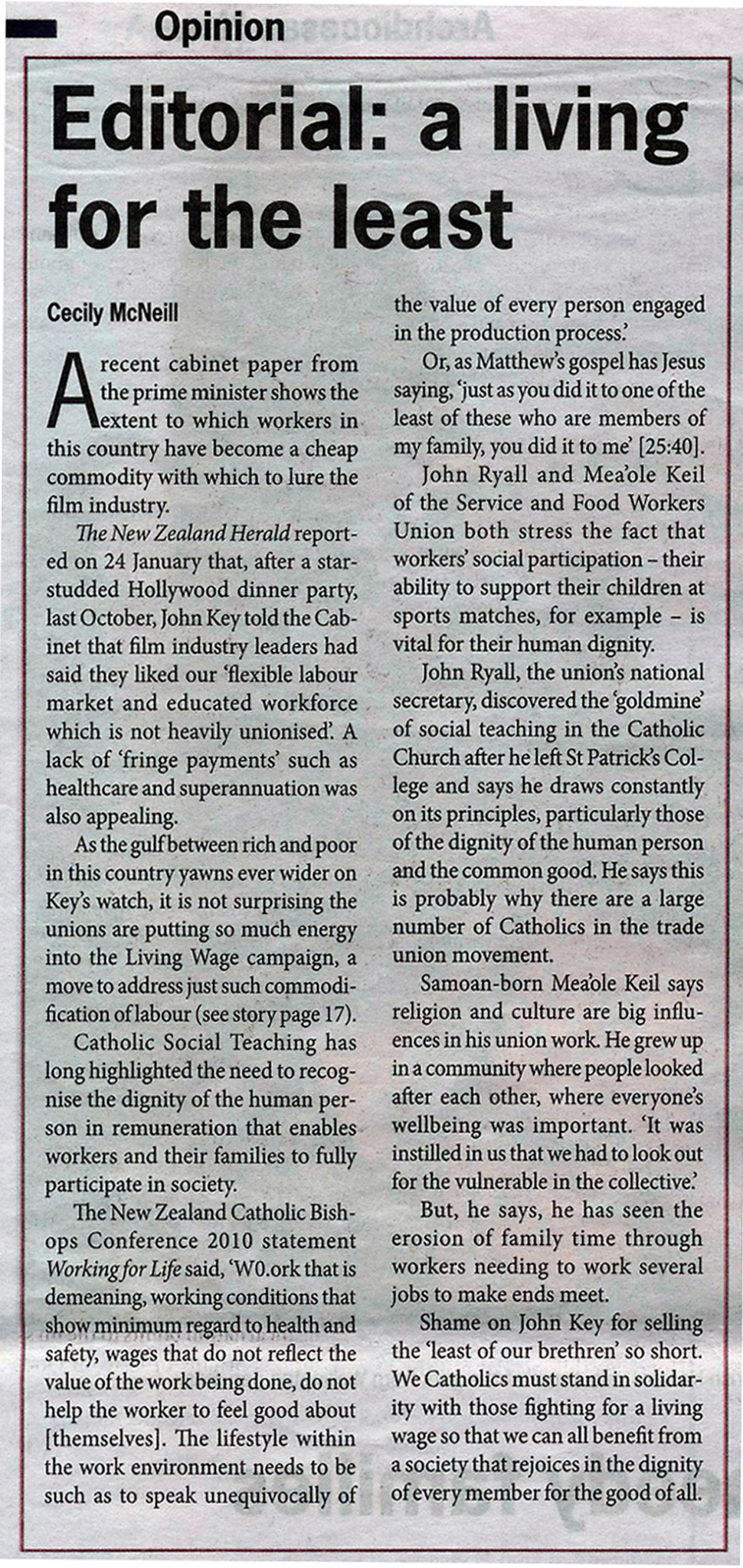 Archdiocesan News
Archdiocesan News
October 2013
At the Australasian Catholic Press Association conference in Melbourne on 4-5 September, Wel-Com beat down fierce competition to win best editorial in 2012-2013. The winning editorial was ‘A living for the least’, on the living wage, published in the February, 2013 issue of Wel-Com.
In the citation, the judge said:
‘This well-written, concise editorial made a claim about the treatment of workers in New Zealand under the John Key-led government, backed it up with apt quotation, related this claim to a then-current union-led Living Wage campaign, and applied the topic to Catholic social teaching as articulated in a 2010 NZ Catholic Bishops Conference statement, Working for Life. It integrated, appropriately, some telling remarks from a couple of interestingly relevant union leaders. The editorial was bold enough to come to a strong conclusion underwritten by a clear moral purpose and designed unabashedly to influence its readership.’
Other New Zealand winners include Tui Motu Interislands, Marist Messenger and NZ Catholic. Click to download a PDF booklet listing all ACPA Awards for Excellence 2013.
Conference highlights
The conference brings together media from throughout Australia, New Zealand and the Pacific every year to discuss ways of making the issues in the Church of today more relevant for readers.
A highlight of the conference this year was a discussion on presenting contentious issues in Church media. Wel-Com editor Cecily McNeill was the first of four panelists to speak and told of how coverage of the breakin at the American spy base Waihopai had polarised opinion in the Church.
Other speakers continued this theme, discussing the fine line between representing the truth as they see it and keeping everyone happy.
With one of the panelists being the communications director for the Church’s response to the Australian Royal Commission on Child Abuse, the debate focused mainly on reporting of clergy sex abuse.
It was generally felt that Church media were not doing readers any favours by failing to report on cases when they arose in their area, that knowledge of such cases was important for healing of the whole Church as well as for the individuals concerned.
One participant who had just arrived in Australia from Britain said he had been raped ‘multiple times’ and that, with statistics as high as ‘one in four’ people in the Church affected by sex abuse, there were bound to be other survivors in the room also.
The topic so exercised journalists that the session went an hour over the time limit without any complaint.
A second conference which followed ACPA was for those working in religious media, ARPA. The two conferences usually share a lunch on the day the one finishes and the other starts.
ARPA also presented a stimulating conference this year. Jesuit priest Fr Frank Brennan said how he had written articles for the Jesuit online magazine Eureka Street for political battles on behalf of asylum seekers, and the founder of the School for Advanced Journalism at Melbourne University, Margaret Simons, supported the importance of new media, tweeting, blogging, which were replacing newspapers as we know them.